Thursday, 2 February 2012 |
Research into Cellular Therapy Development and Clinical Trials in the Stem Cells Field |
| | 09:00 | 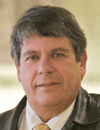 | Keynote Presentation Companies in Translation with CIRM
Alan Trounson, President, California Institute for Regenerative Medicine, United States of America
CIRM funds companies directly through loans and indirectly as partners in grants to academic teams. The CIRM translation program is rich with industry contributions that will have global impact. |
| 10:00 | 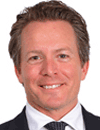 | Keynote Presentation Stem Cell-Based Treatments for Clinical Application
Hans Keirstead, Professor of Anatomy and Neurobiology, University of California, Irvine, United States of America
We have generated stem cell-based products suitable for addressing spinal cord injury, motor neuron disease, and cancer. Data will be reviewed, with an emphasis on the common themes pertinent to stem cell translation. |
| 10:30 | Coffee and Networking in Exhibition Hall | 11:15 | 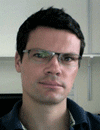 | Keynote Presentation Intranasal Insulin, Biopharmaceuticals and Stem Cells Bypass the Blood-brain Barrier to Treat Alzheimer’s, Stroke, Brain Tumors, Parkinson’s and other CNS Disorders
William Frey, Director, University of Minnesota, United States of America
Intranasal delivery bypasses the blood brain barrier to target therapeutics to the CNS. Intranasal insulin improves memory in both normal adults and patients with Alzheimer’s disease. Intranasal bone marrow-derived stem cells are effective in animal models of both Parkinson’s disease and neonatal ischemia. |
| 11:15 | 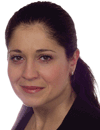 | Keynote Presentation Intranasal Insulin, Biopharmaceuticals and Stem Cells Bypass the Blood-brain Barrier to Treat Alzheimer’s, Stroke, Brain Tumors, Parkinson’s and other CNS Disorders
Lusine Danielyan, Head, Division of Cellular/Molecular Pharmacology, University Hospital of Tuebingen, Germany
|
| 12:30 | Lunch and Networking in Exhibition Hall | 13:30 | Poster Session | 14:15 | Enhanced Homing, Permeability and Retention of Stem Cells using Pulse Focused Ultrasound (pFUS): Implications for Targeting Stem Cell Delivery and Regenerative Medicine
Joseph Frank, Senior Investigator, National Institutes of Health, United States of America
| 14:45 | Gene-modified MSCs for Stable Stroke: Pre-clinical and Early Clinical Development
Casey Case, Vice President, SanBio, United States of America
| 15:15 | Coffee and Networking in Exhibition Hall | 16:00 | Adherent Adult Stem Cell Therapy for Ischemic Injury in the Heart and Brain
Robert Deans, Executive Vice President, Athersys Inc, United States of America
Adherent stem cells exert significant benefit in acute ischemic injury via trophic pathways modulating inflammation, angiogenesis, and cytoprotective pathways. Clinical development progress in stem treatment of acute myocardial infarct and stroke will be presented. | 16:30 | Stem Cell Therapy for the Treatment of Radiation-induced Normal Tissue Damage
Alain Chapel, Scientific investigator, Institute for Radiological Protection and Nuclear Safety, France
| 17:00 | Market Analysis of the Cellular Therapy Space
Enal Razvi, Managing Director, Select Biosciences Inc, United States of America
| 17:30 | Drinks Reception |
Friday, 3 February 2012 |
Biobanking |
| | 08:00 | Cellular Therapy and Tissue Banking
Mary-Beth Fisk, President & COO, South Texas Blood and Tissue Center, United States of America
This presentation will illustrate development of cell and tissue recovery, manufacturing, and distribution. | 08:30 | Stem Cell Banks: Investing in the Promise of Cancer Stem Cell Science
Rosario Isasi, Research Associate, McGill University, Canada
This presentation will provide an overview of how stem cell banks are contributing to the advancement of cancer stem cell research and clinical therapies, while highlighting the principal challenges and opportunities of the heterogeneous scientific, ethical and legal landscape. | |
Stem Cells for Drug Discovery and Development |
| | 09:00 | Drug Discovery Technology using Human iPS Cells, Hepatocytes, Cardiomyocytes and Neurons
Chikafumi Yokoyama, Chairman/Chief Executive Officer, ReproCELL, Japan
Human iPS cell technology for drug discovery, Cardiomyocytes for toxicity assay, Dopaminergic neuron for Parkinson disease, Hepatocytes for ADME testing. | 09:30 | Neurophysiological Studies of Ion Channels and Receptors Expressed in Neurons Derived from Human Stem Cells
Robert Halliwell, Professor of Neuroscience and Clinical Pharmacology, University of The Pacific, United States of America
Electrophysiological studies of the ion channels expressed in neurons derived from stem cells are essential if they are to be used in drug discovery. This presentation will provide new data on the pharmacology of an array of ion channels in neurons differentiated from human stem cells and their sensitivity to a range of neurotoxins. | 10:00 | 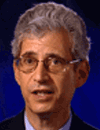 | Keynote Presentation The Mandate to Deliver Cures : Aligning the Science, Industry and Patient-advocacy Agendas
Bernard Siegel, Founder and Executive Director, Genetics Policy Institute, United States of America
Out of the ferocious public policy debates on the use of hESCs there emerged a “pro-cures” consumer movement. It is imperative that the pro-cures movement’s goals become aligned with the policy initiatives of industry and science with the aim of accelerating the translation of research into effective treatments and cures. |
| 10:30 | Coffee and Networking in Exhibition Hall | 11:15 | Clinical Dielectrophoresis for the Isolation of Live Adult Stem Cells: Practical Findings from First Human use in the Hand Atrophy Model
Allan Wu, Chief Scientific Officer, The Morrow Institute, United States of America
Dielectrophoresis (DEP) is a process whereby live cells are isolated based upon an electronic “signature”. This method has been applied in the clinical setting for isolation of live adipose derived stem cells used for reconstruction of the human hand. Findings for the first ever reported use of clinical DEP will be presented.
| 11:45 | Current Trends in European / German Stem Cell Law after the Brustle Patent Case
Timo Faltus, Research Associate, Martin-Luther-University, Germany
The presentation Focuses on impact and trends of the European Court of Justice recent patent decision on the patentability of hESC on research and medical usability of stem cells across the European Union | 12:15 | Efficient Cardiac Differentiation of Human Induced Pluripotent Stem Cells
Paul Burridge, Researcher, Stanford University School of Medicine, United States of America
Development of a universal and efficient system for the cardiac differentiation of non-viral human induced pluripotent stem cells and applications in cardiotoxicity analysis. | 12:45 | Lunch and Networking in Exhibition Hall | 13:30 | Poster Session | 14:15 | Epigenetic Characterization of the FMR1 Gene and Aberrant Neurodevelopment in Human Induced Pluripotent Stem Cell Models of Fragile X Syndrome
Steven Sheridan, Sr Research Scientist, Harvard Medical School, United States of America
| 14:45 | Inducing Pluripotency by RNA
Tariq Rana, Adjunct Professor, Sanford Burnham Medical Research Institute, United States of America
Somatic cells can be reprogrammed to an ES-like state to create induced pluripotent stem cells (iPSCs) by ectopic expression of transcription factors. Role and mechanisms of cellular microRNAs in regulating iPSC generation will be discussed. | 15:15 | Coffee and Networking in Exhibition Hall | 15:45 | The p53 Signature of Epithelial Ovarian Cancer Stem
Yang Yang, Associate, Yale University School of Medicine, United States of America
We demonstrate that a population of epithelial ovarian cancer (EOC) stem cells in human ovarian tumors retain a unique p53 signature and resemble the hypothetical cell-of-origin of EOC in fallopian tubes. P53 also plays critical roles in the EOC progression. | 16:15 | Novel Modalities in Angiogenic Therapy: Modified Cells and Combined Gene Delivery for Stimulation of Angiogenesis
Pavel Makarevich, Researcher, Moscow State University , Russian Federation
Need for novel approaches in angiogenic therapy arises from mediocre efficacy shown in clinical trials. We tested the angiogenic potential of two methods – using gene-modified progenitor cells and using combined gene transfer of two angiogenic growth factors | 16:45 | Differentiation of Human Pluripotent Parthenogenetic Stem Cells into Hepatocytes and Cornea-like Constructs for Transplantation and for Applications In-vitro
Alina Ostrowska, Director, International Stem Cell, United States of America
An alternative choice of hESC is pluripotent stem cell lines originated from the inner cell mass of human parthenogenetic blastocysts. Different activation techniques of undifferentiated hpSC (human parthenogenetic stem cells) open up the possibility of producing corneal constructs or hepatocyte-like cells that can be potentially used in in vitro assays as well as regenerative therapies. | 17:30 | Close of Conference |
|
